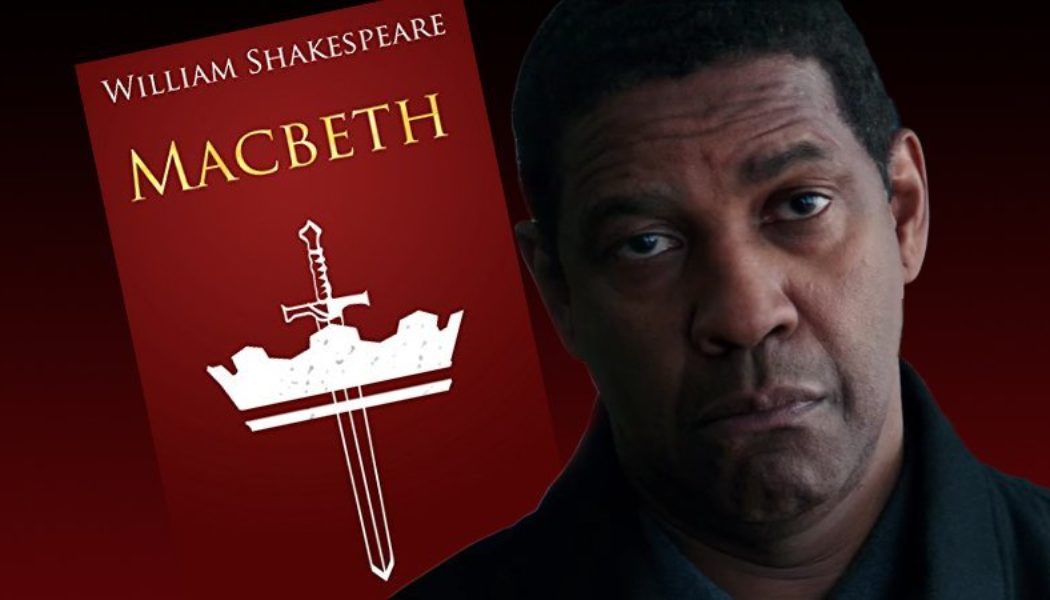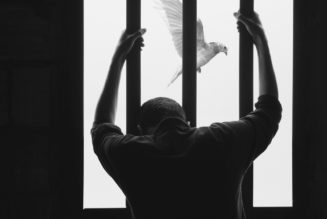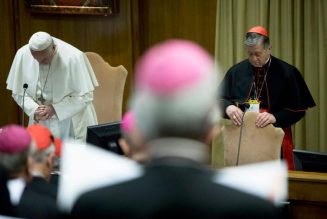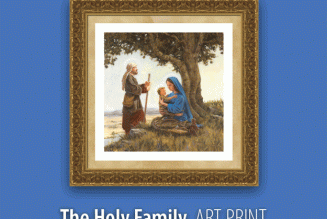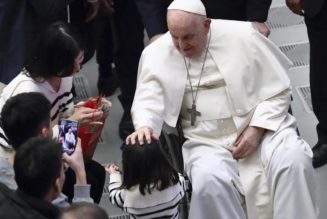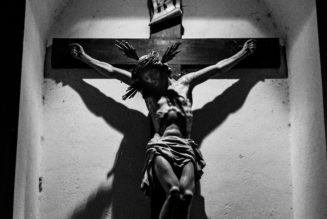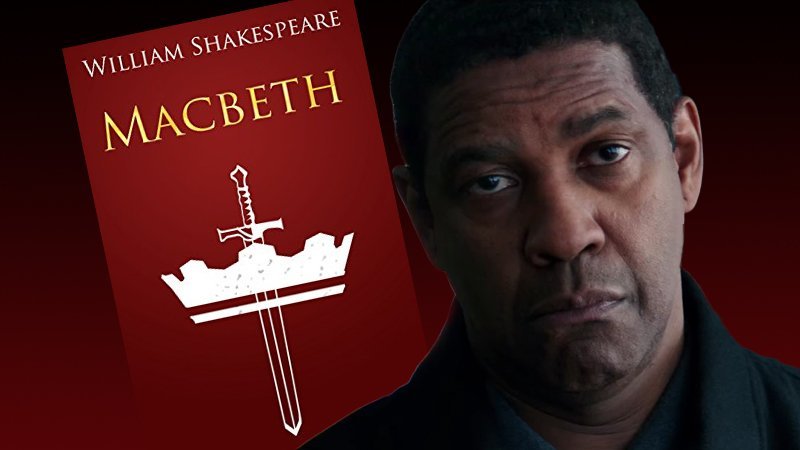
Behold. It is time for me to praise — at great length — something published in The New York Times. It was even written by Maureen Dowd, of all people.
The headline on this length first-person feature: “Denzel Washington, Man on Fire.” No, this story isn’t about the stunningly violent, but at times quite biblical, 2004 movie entitled “Man on Fire.” It’s about the new film — “The Tragedy of Macbeth” — that combines the Oscar-level talents of Washington, director Joel Coen and producer-actress Frances McDormand, who is married to Coen. For Washington, playing the lead role represented a return to his theater roots with Shakespeare.
As you would expect, a Times piece by Dowd is going to include quotes from Hollywood A-listers such as Ethan Hawke, Liev Schreiber, Melissa Leo and Meryl Streep. Tom Hanks has this to say about Washington: ““He is our Brando. Nicholson. Olivier.”
However, the key to this feature is that the “fire” in the headline is both artistic and spiritual. It is, literally, a reference to Washington’s Pentecostal Christian upbringing and the Christian faith that he is not afraid to discuss in the context of his talent and his vocation.
It’s hard to know what to quote from this piece — since it covers so many bases. If you want insights into filmmaking and the complex minds of Coen and McDormand, you will find it. This isn’t a religion story. However, it’s a story that is willing to let Washington speak his mind.
The faith element enters with one of those “here I am talking to Denzel Washington” scenes that are far too common in arts and entertainment journalism. But, in this case, this tired device works. This passage is long, long, long, but essential. I will break it up, just a bit:
[Washington] said he had gotten very little sleep. He had just put the final touches on a film he directed, “A Journal for Jordan,” the true story of the romance between Dana Canedy, a former New York Times reporter and editor, and Sgt. Charles Monroe King, a soldier who was killed by a roadside bomb in Iraq, after meeting their infant son only once. It stars Michael B. Jordan and Chanté Adams and also opens widely on Christmas Day.
“It’s just a beautiful story of loss and love,” Mr. Washington said, “a story about real heroes and sacrificing, men and women who have given their lives so that we have the freedom to complain.” (The star, who has played a policeman more than a dozen times, recently made similar comments of respect for cops who put their lives on the line.)
He said that before his 97-year-old mother died a few months ago, he promised her that he would “attempt to honor her and God by living the rest of my days in a way that would make her proud. So that’s what I’m trying to do.”
“I’m more interested in directing because I’m more interested in helping others,” he said. “What I do, what I make, what I made — all of that — is that going to help me on the last day of my life? It’s about, Who have you lifted up? Who have we made better?
“This is spiritual warfare. So, I’m not looking at it from an earthly perspective. If you don’t have a spiritual anchor you’ll be easily blown by the wind and you’ll be led to depression.”
Talking about faith and family leads to a logical reference to Washington’s upbringing and how it has increasingly begun to affect his work.
Sounding like his father, a Pentecostal minister who died in 1991 — “That’s what got my father, he couldn’t give up the meat and fried foods” — Mr. Washington asked me: “Have you read the Bible? Start with the New Testament, because the Old Testament is harder. You get caught up in the who-begot-who-begot-who thing.”
He said he wants to mentor young actors like Mr. Jordan, Ms. Adams and Corey Hawkins, who did an acclaimed turn as Dr. Dre in “Straight Outta Compton,” and now plays Macduff, the lord who beheads Macbeth. …
Mr. Hawkins said that he sometimes prayed with Mr. Washington on the “Macbeth” set in Burbank.
“Sometimes we get talking and you see the preacher in him,” the younger actor said. “He’s just a natural-born charismatic leader who is not afraid to talk about his own faults or misgivings or shortcomings.”
That’s quite a bit of religion ink, in a story of this kind.
I thought that would be it, in terms of faith talk, but there was much more. For those who have followed Washington’s career and discussions of his craft, this Times feature hints at one of his core values — which is finding spiritual questions in the sins of his characters, not just their virtues.
This is a actor who is willing to play with the fires of temptation, violence and judgment, as he described in a round-table interview with several religion-beat writers (including me) while promoting the 2010 film, “The Book of Eli.” Here is the opening of the “On Religion” column that I wrote about that:
The first time Denzel Washington read the “Training Day” script, he had an intensely personal reaction to his character — the charismatic, but fatally corrupt, detective Alonzo Harris.
“I try to bend even the worst of my roles, like ‘Training Day,’ ” said Washington. … “The first thing I wrote on my script was ‘the wages of sin is death.’ “
After that biblical pronouncement, the superstar pleaded for a crucial change in this role, for which he won the Oscar as Best Actor. In the original script, viewers learned about his character’s death in a television newscast. Washington insisted that this urban wolf be yanked out of his car and forced to “crawl like a snake” before being riddled with bullets, while people in the neighborhood turned their backs on him.
“I said, ‘No, no. … In order for me to justify him living in the worst way, he has to die in the worst way,’ ” explained Washington.
For Washington, this “bending” process is part of his ongoing efforts to make sense of his Christian faith in the midst of a career as one of Hollywood’s most powerful players in front of, and behind, the camera. The goal isn’t to sneak faith into mainstream films, but to pinpoint themes about sin, redemption, justice, dignity and compassion that mesh with what he believes to be true as the son of Pentecostal pastor and an active member of the giant West Angeles Church of God in Christ.
The bottom line: Washington doesn’t think of himself as a player in Hollywood. As Dowd noted in this new piece:
I asked Mr. Washington if Hollywood had become more diverse after #OscarsSoWhite.
“Hollywood is a street,” he said. “I live in Los Angeles. I don’t live in Hollywood. I don’t know what Hollywood thinks. It’s not like it’s a bunch of people who get together on Tuesdays.”
You can see how that topic might be linked to this passage about race:
At the start, Mr. Washington asked Mr. Coen about the black and white of it all. But it turned out he was just asking the director whether he was going to film in black and white. Mr. Washington believes that if you look at everything through the lens of a political agenda, you lose the plot as an artist.
Or how about marriage?
The actress [McDormand] said that, for her and “D,” their long marriages provided insight: “Denzel and Pauletta have been married as long as Joel and I have. We had to learn how to be parents together and life partners together because it’s an ever-changing landscape.”
Then there is this aside, with a strong, strong Washington one-liner:
Mr. Coen said he wasn’t scared of the Macbeth curse “until Covid shut us down on Friday the 13th in March 2020.” But Mr. Washington was never worried.
“I’m a God-fearing man,” he said. “I try not to worry. Fear is contaminated faith.”
To my amazement, Dowd decided to close the story with a return to this religion theme. There is even, in a bonus set of Q&A exchanges, this blunt line from Washington:
Don’t play with God. Don’t play with God. You hear what I said? Don’t play with God. You heard what I said? Don’t play with God.
This one-on-one drama ends with Washington urging Dowd — a Beltway player, if there is one — to download a Bible-reading app.
That’s bold.
When he accepted the American Film Institute Life Achievement Award in 2019, it was clear that he was getting more publicly spiritual. He called himself a vessel of God and played an old video of his late father-in-law talking about how we must love and care for one another. He talked disdainfully about the “Twitter-tweet-meme-mean world that we’ve created” and said we’d better do our best to “turn this thing around” for young people.
He continued this theme at our coffee.
“The enemy is the inner me,” he said. “The Bible says in the last days — I don’t know if it’s the last days, it’s not my place to know — but it says we’ll be lovers of ourselves. The No. 1 photograph today is a selfie, ‘Oh, me at the protest.’ ‘Me with the fire.’ ‘Follow me.’ ‘Listen to me.’
“We’re living in a time where people are willing to do anything to get followed. What is the long or short-term effect of too much information? It’s going fast and it can be manipulated obviously in a myriad of ways. And people are led like sheep to slaughter.”
In heaven, he said, “there are going to be two lines, the long line and the short line, and I’m interested in being in the short line.”
He advises me to read The Daily Word, an inspirational message that has an app. (As I write, the daily word is “compassion.”)
“You have to fill up that bucket every morning,” he said. “It’s rough out there. You leave the house in the morning. Here they come, chipping away. By the end of the day, you’ve got to refill that bucket. We know right from wrong.”
It’s quite a story or even, has a Pentecostal believer would say, a testimony.
Join Our Telegram Group : Salvation & Prosperity
